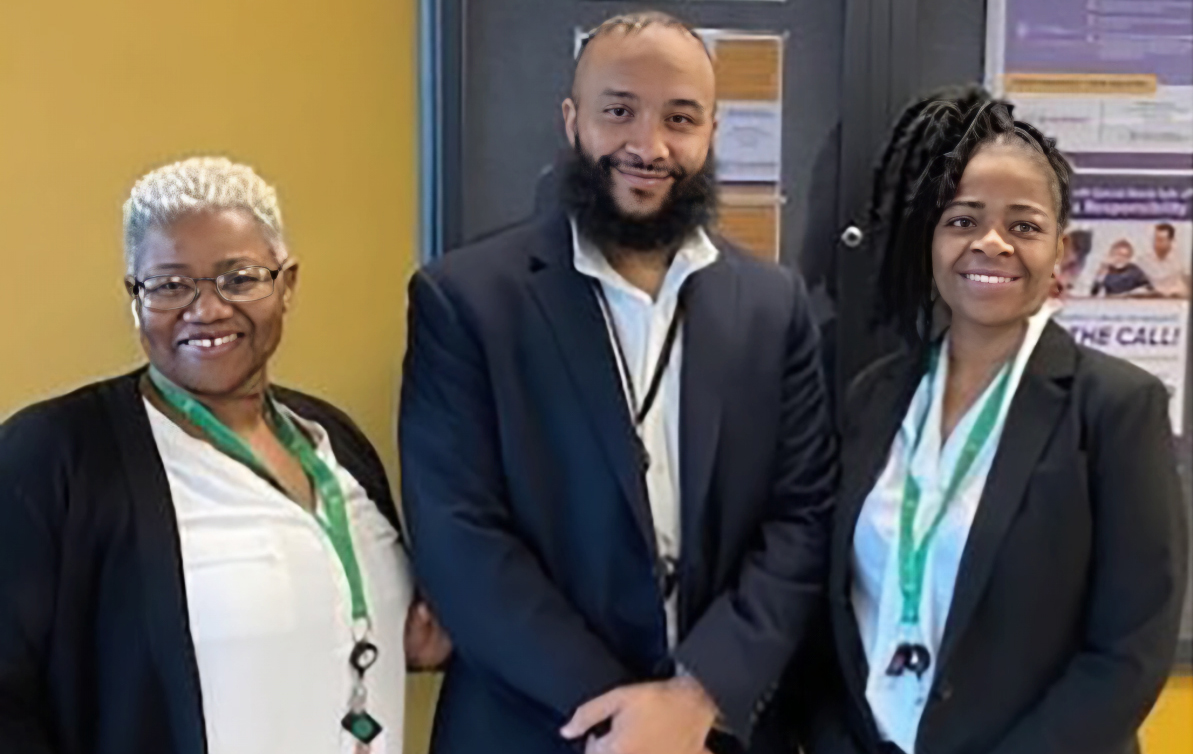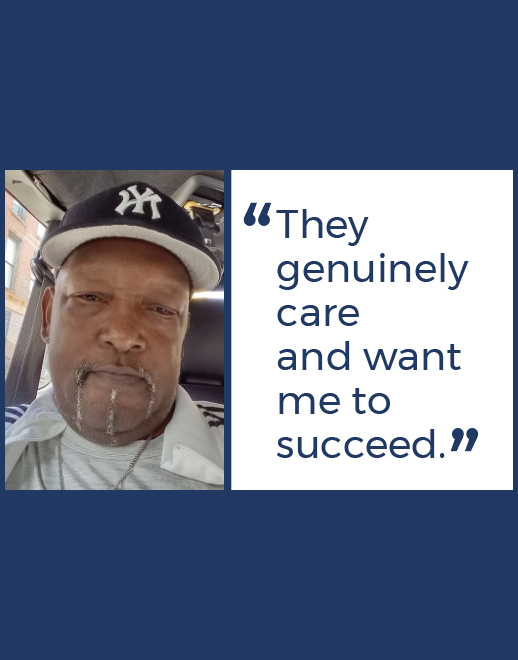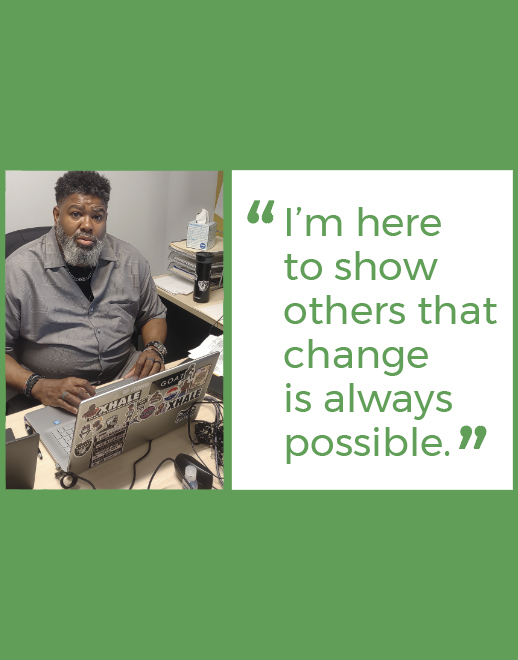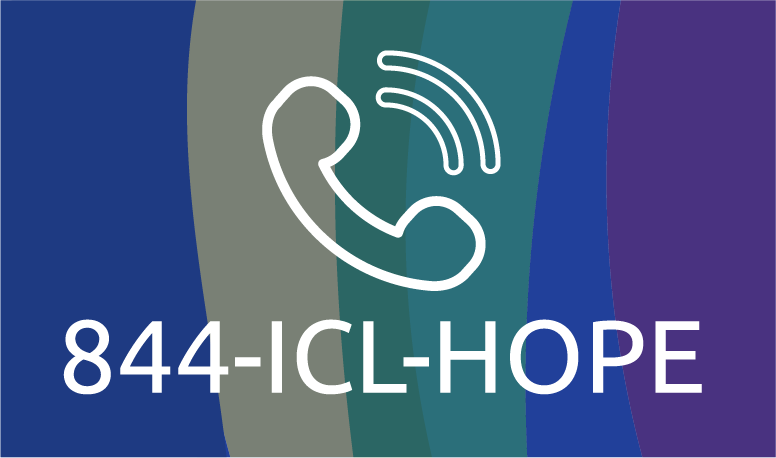|
|
|
|
|
|
|
|
 |
|
|
New Hope and Recovery Center Offers a Brighter Future In January, ICL proudly opened the Hope and Recovery Center, an outpatient substance use disorder treatment and recovery program that is a crucial component of our whole-health services at the ICL East New York Health Hub. The Center’s array of services are designed to support people on their journey to getting better. The need for substance use resources has never been greater. During the pandemic, many people struggled with isolation and anxiety, exacerbating mental health and substance use concerns. Alcohol-related deaths increased by 25 percent nationwide from 2019 to 2020. And the overdose crisis has reached historic levels— 2,668 individuals died of a drug overdose in New York City in 2021, an increase of 78 percent over 2019 and 27 percent over 2020. To address these troubling trends, the Center offers evidence-based interventions to meet each individual’s needs and goals. Clients can access medication-assisted treatment; a variety of counseling services, including for family members and partners; overdose prevention training; and more. Everything happens in a compassionate, safe, and nurturing environment. |
|
|
|
|
|
 |
From left to right: Leslie Lopez, Credentialed Alcoholism and Substance Abuse Counselor; Frankie Cancel, Program Director; Drucilla Williams, Vice President of Addiction Services |
|
|
A Diverse Team to Support Recovery The Hope and Recovery Center’s dedicated team of professionals possesses a wide range of expertise, and they work in coordination to address all aspects of recovery. There are medical providers, psychiatrists, family therapists, licensed social workers, licensed mental health counselors, certified alcohol and substance use counselors, and peer advocates to help patients achieve lasting changes. |
|
|
|
|
|
|
|
|
|
A Veteran Finds Hope on His Recovery Journey |
|
 |
|
Stephie is a 61-year-old United States Marine Corps veteran who came to the Hope and Recovery Center from ICL’s Borden Avenue Veterans Residence. After serving our country, he struggled with PTSD and depression, and he turned to drugs to cope. He got help for his mental health and was sober for 20 years while proudly raising two daughters and putting them through college. But recovery is seldom a linear path. More recently, Stephie has experienced hardships, including the death of his beloved wife and homelessness, leading to a relapse. Despite facing adversity, Stephie is optimistic about the future because of support from the Center’s team, especially from peer advocate Vincent Pruitt. “They genuinely care and want me to succeed, and Vincent's personal experience with recovery inspires me on my own journey,” he says. At the Center, he attends one-on-one counseling sessions several times a week, which is helping him abstain from substance use. |
|
|
|
|
|
|
|
|
|
Peer Support Paves the Way for Others to Recover |
|
 |
|
Vincent Pruitt is a peer advocate at the Hope and Recovery Center. He draws from his personal experience with substance use, coupled with professional training, to support clients who are facing challenges similar to his own. Years ago, Vincent struggled with mental health issues and began using drugs to self-medicate, eventually losing his job with Amtrak and his home. As a veteran, he turned to the VA for assistance, where a peer advocate encouraged him to work toward recovery. Today, he leans on that personal history to do the same for others. At the Hope and Recovery Center, Vincent bridges the gap among staff, clinicians, and clients. If there is a breakdown in communication, he can both advocate on the client’s behalf and help them better understand their provider. He also gets to know each person’s individual needs and educates them about recovery options. Vincent takes pride in inspiring others to see a different path and providing a reliable, steady presence. “I’m here to show others that change is always possible.” |
|
|
|
|
|
|
|
|
|
Q Can you talk about the approach of the Hope and Recovery Center? A We called this program the Hope and Recovery Center because hope is the most important thing for people recovering from substance use disorder. Whether clients need support for use of opioids, alcohol, marijuana, or gambling, we create individual plans for each participant. Recovery can look different for everyone. For some clients, it means focusing on reducing substance use; for others, it means working toward sobriety. The hope this Center provides to clients is knowing we are their partners in recovery. Q What is unique about the Center? A One thing that sets us apart is our work with families. Many substance use disorder treatment services focus on the individual, but recovery takes a village, so we also offer counseling and support groups for loved ones. We help clients heal connections with family and friends so they can thrive post-treatment. Fostering strong relationships, community ties, and a sense of belonging are the foundation of recovery. The Center is also unique because its substance use treatment services are integrated with our other whole health supports at the East New York Health Hub. People can get all their health and wellness needs met under one roof — whether that’s primary care, mental health care, or a hot shower and delicious meal. Q What do you wish more people understood about substance use disorder? A Substance use disorder is not a “personal failing,” but rather a complex chronic condition influenced by brain chemistry, genetics, the environment, and an individual’s life experiences. That is why ICL’s whole-health model is so important. You can treat substance use, but it is just as vital to consider the entire person, including their other mental and physical health needs. |
|
|
|
|
|
|
|
|
|
|
|
|
|
|
|
|
|
|
|
|
|
|
|
|
|
|
|
Institute for Community Living ICL helps New Yorkers of all backgrounds and ages living with serious mental illness, substance use disorder, and developmental disabilities achieve greater health and independence. Your gift will immediately help those with the greatest need. Please take a moment to help people get better with us. To discuss your gift or learn more about your giving options, please email Development@iclinc.net or call 212-385-3030, x 10004. |
|
|
|
|
 |
Call 844-ICL-HOPE (844-425-4673) to connect to resources. Visit iclinc.org to learn more about ICL programs and services. |
|
|
|
|
|
 |
|
|
|
|
|
|
Contact Us Institute for Community Living (ICL)
125 Broad Street, Third Floor
New York, New York 10004
212-385-3030
info@iclinc.net |
|
|
|
|
|
|
|
|
|
|
|